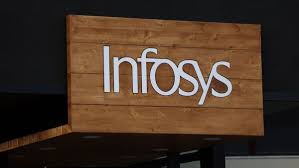
Infosys ₹18,000 Crore Buyback: Should You Participate?
Infosys has initiated its largest share buyback program worth ₹18,000 crore, which opens for subscription today, November 20, and will remain available until November 26. This unprecedented buyback is an enticing opportunity for eligible investors to tender their shares at a price of ₹1,800 each. To qualify, shareholders must have held the company’s shares in their demat accounts on the record date of November 14.
The buyback entails repurchasing 10 crore fully paid-up equity shares, accounting for approximately 2.41% of Infosys's total paid-up equity share capital. A notable aspect of this buyback is the reservation for small shareholders, who will receive a 15% allocation based on the number of shares they hold or their entitlement, whichever is higher. This initiative aims to benefit the 25,85,684 small shareholders who hold shares worth not more than ₹2 lakh.
Interestingly, Infosys promoters, including prominent figures like Nandan Nilekani and Sudha Murty, will not participate in this buyback program. This absence could lead to a higher acceptance ratio for public shareholders, particularly retail investors, as they may find a greater likelihood of their shares being accepted for buyback.
Experts suggest that this buyback could be an appealing opportunity for retail investors due to the premium price offered. Prashanth Tapse, Senior VP at Mehta Equities, points out that investors in lower income slabs might find this buyback attractive, while long-term conservative investors may choose to hold their shares without participating. In contrast, short-term investors should evaluate the tax implications before deciding to tender their shares.
Taxation plays a crucial role in the attractiveness of this buyback. As Abhinav Tiwari, a research analyst at Bonanza, explains, the buyback is now taxed as “deemed dividend,” which means that the payout is fully taxable at the shareholder's slab rate. For those in higher tax brackets, the net benefit from the buyback can diminish significantly, making market sales a more efficient option. However, for lower tax bracket investors, the buyback still offers incremental value.
Another important factor to consider is Infosys’ strong balance sheet. The company plans to fund the buyback entirely through its internal cash and reserves, demonstrating robust free cash flow generation. This strategy could offset slower earnings per share (EPS) growth by reducing the overall share count, ultimately benefiting long-term shareholders who choose not to tender their shares.
In conclusion, the Infosys buyback presents both opportunities and challenges for investors. It's essential for shareholders to carefully assess their tax situations and investment strategies before making a decision.










